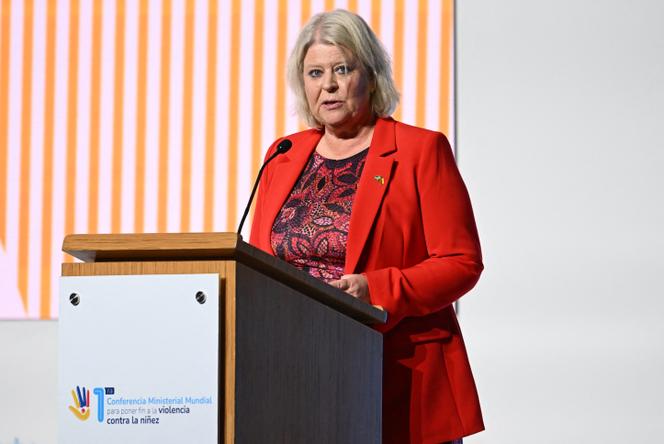


After ordering the construction of special sections in prisons for incarcerated minors – that will replace closed education centers – and putting forward a series of reforms that aim for tougher sentences for 15-17 year-olds, Sweden's ruling conservative coalition of the Moderates, Christian-Democrats and Liberals in collaboration with the far right, wants to grant social services more coercive powers in order to prevent young people at risk being drawn into crime.
Electronic tagging was among the measures envisaged and recommended by the Swedish commissions of inquiry, which delivered its conclusions on Wednesday November 13. It will apply to young people over 15 who are already involved in juvenile criminality, or veering toward it, if social services suspect that they will not respect the 6 pm to 7 am curfew already imposed on them. For the conservative social affairs minister Camilla Waltersson Grönvall, for it is intended as a prevention tool not punishment.
Another proposal put forward is to fine parents who refuse to comply with social service guidelines such as ensuring their child attends school, does their homework, participates in free-time activities and respects curfew. On the other hand, dedicated parents should be granted a temporary parental allowance. And young people at risk of developing a dependency on addictive substances could be subject to regular drug testing.
According to the commission's estimates, 17,000 young people a year will be affected. "This may sound harsh, but setting requirements for parents and children is extremely important and necessary," said the minister, who testified that "40% of parents refuse intervention" by social services, while "the number of young people sentenced to detention in closed education centers for minors has risen from around 60 to 200 in two years."
Elected for his promise to curb organized crime, Sweden’s prime minister Ulf Kristersson’s objective is to ensure that "today's children do not become tomorrow's child soldiers." Too bad if the measures his coalition is about to take "seem harsh from the point of view of Swedish social policy." On Thursday, November 14, Mr. Kristersson criticized his predecessors on Facebook by saying that when his government took office in October 2022, "there was virtually no policy at all to prevent the recruitment of new gang members."
In the last few years in Sweden, the number of minors placed in provisional detention – a measure taken only for the most serious cases – has exploded, rising from 139 in 2020 to 387 in the first ten months of 2024, an increase of 180%. Among them are 15-year-olds suspected of murder or attempted murder. Regular information given out by the police and crime prevention council concern children as young as 11 or 12, who are now being recruited by gangs, to sell drugs or kill. About 20 of these officially termed "child soldiers" are currently in provisional detention in Denmark. They are suspected of having been paid by rival gangs to commit murder.
You have 10.33% of this article left to read. The rest is for subscribers only.
